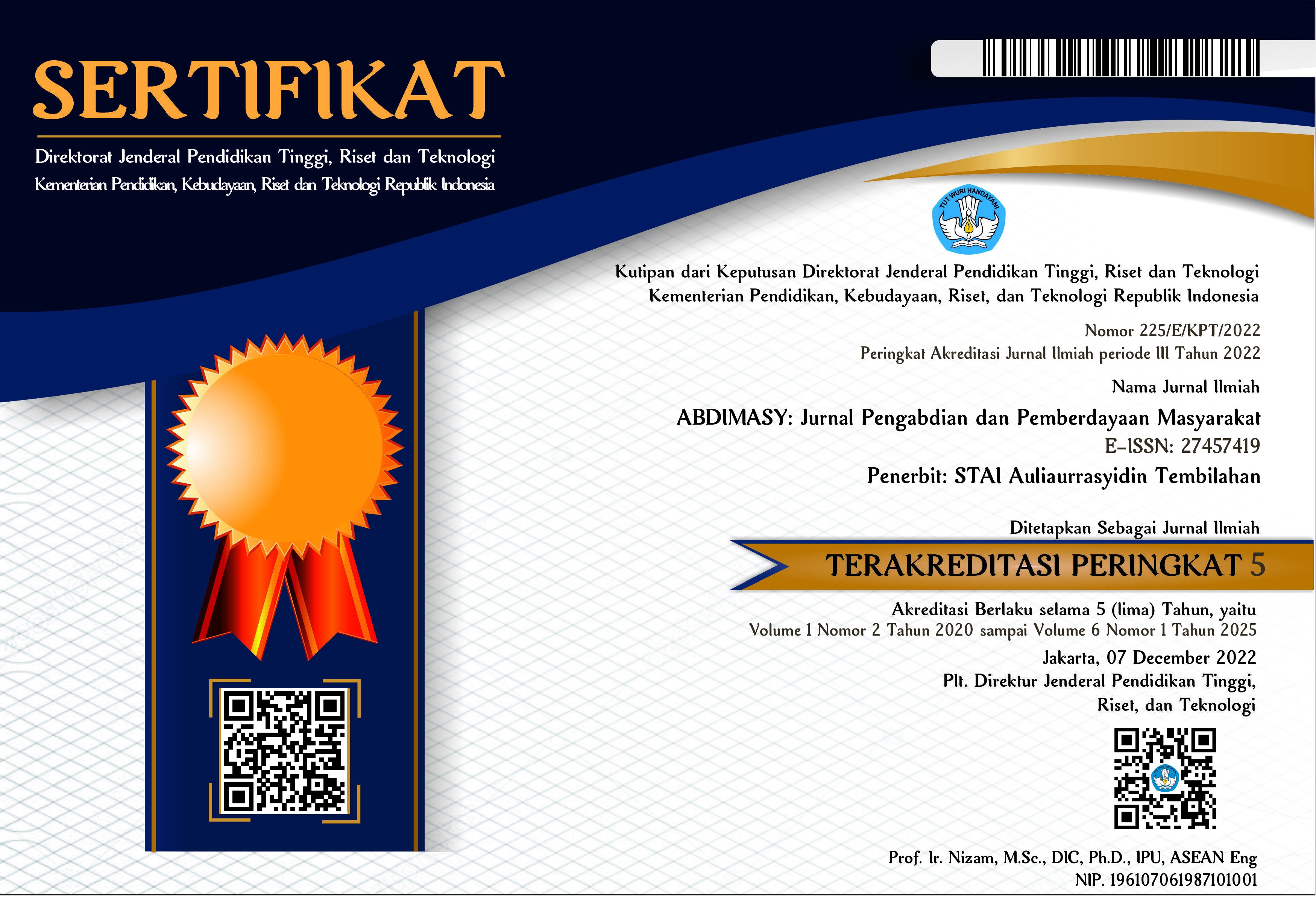Pelatihan Model Pengembangan Kurikulum 2013
DOI:
https://doi.org/10.46963/ams.v3i1.533Keywords:
Curriculum, Development ModelAbstract
The curriculum as several educational plans needs to be developed dynamically according to the needs and changes that occur in society with reference to the development of curriculum models. In line with this, among the many models of curriculum development, one that must be considered is choosing a curriculum development model. The selection of the development model is not based on the advantages and benefits and opportunities for optimal results, but also needs to be adapted to the education system and education processing system adopted and which educational concept model is used. serves as a means to facilitate a communication, or as a perspective guide for making decisions, or as a planning guide Therefore, the model can help us form the concept of the process by showing certain principles and procedures, as for the purpose of this mentoring is to provide insight to teachers in the development of the 2013 curriculum model. In addition, teachers who pursue escape are expected to improve their skills in carrying out learning activities. To achieve the expected goals of this training, lectures, demonstrations, exercises and assignments are used. The targets in this service are teachers SMA Tengku Sulung districts Sungai Batang. The methods used are in the form of seminars, demonstrations, and exercises or assignments.
Downloads
References
Arifin, Zainal. (2011). Konsep dan Model Pengembangan Kurikulum. Bandung: Rosda Karya.
Burhan Nurgiyantoro (1988). Dasar-dasar Pengembangan Kurikulum. Yogyakarta : BPFE.
Dakir. (2004). Perencanaan dan Pengembangan Kurikulum. Jakarta: Rineka Cipta.
E. Mulyasa. (2007). Kurikulum Tingkat Satuan Pendidikan. Bandung: PT Remaja Rosdakarya.
Muhaimin. (2014). Pengembangan Kurikulum Pendidikan Agama Islam. Jakarta: PT. Raja Grafindo Persada.
Oemar Hamalik. (2008). Menejemen Pengembangan Kurikulum. Bandung: Remaja Rosda Karya.
Wina Sanjaya. (2008). Kurikulum dan Pembelajaran. Jakarta: Kencana Prenada Media Group.
Downloads
Published
Issue
Section
License
Authors who publish with this journal agree to the following terms:
1. Copyright on any article is retained by the author(s).
2. The author grants the journal, right of first publication with the work simultaneously licensed under a Creative Commons Attribution shareAlike 4.0 International License that allows others to share the work with an acknowledgment of the work’s authorship and initial publication in this journal.
3. Authors are able to enter into separate, additional contractual arrangements for the non-exclusive distribution of the journal’s published version of the work (e.g., post it to an institutional repository or publish it in a book), with an acknowledgment of its initial publication in this journal.
4. Authors are permitted and encouraged to post their work online (e.g., in institutional repositories or on their website) prior to and during the submission process, as it can lead to productive exchanges, as well as earlier and greater citation of published work.
5. The article and any associated published material is distributed under the Creative Commons Attribution-ShareAlike 4.0 International License





2.png)



